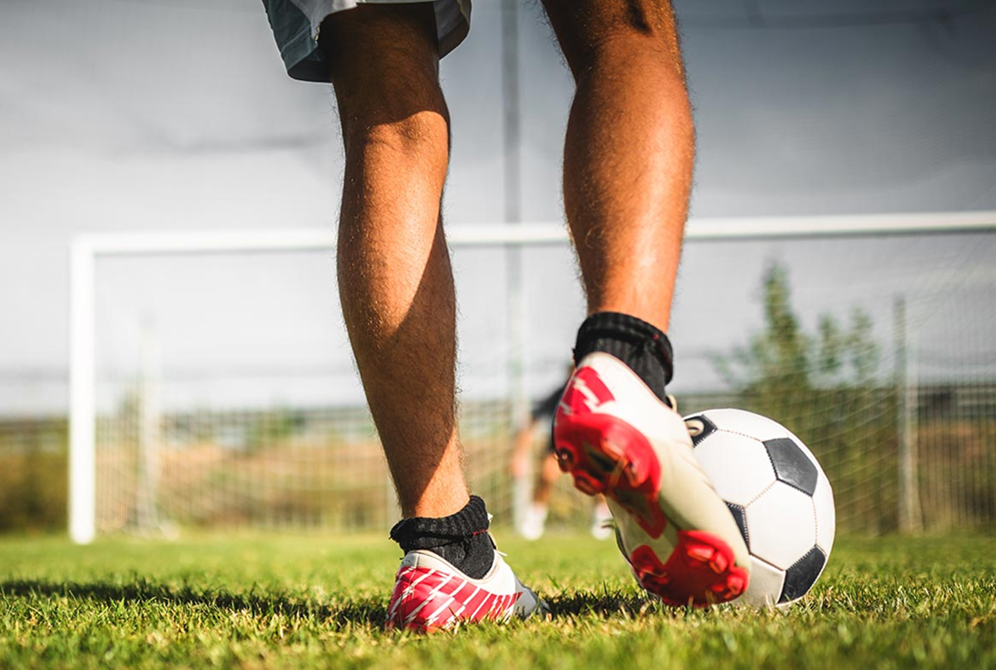
How Acupuncture Can Help Soothe Pregame Anxiety
May 7, 2024
The topic of mental health in sports has been mostly ignored until fairly recently. But thanks to several high-profile athletes’ willingness to open up about their struggles, the topic is no longer quite so taboo.
 “Athletes at all levels are realizing the importance of their overall mental health, mental preparation before an event and mental recovery afterward,” says Thomas R. Betts, DAOM, LAc, a sports medicine acupuncturist at Henry Ford Health. “Having your mind in the right place pays big dividends in terms of sports performance.”
“Athletes at all levels are realizing the importance of their overall mental health, mental preparation before an event and mental recovery afterward,” says Thomas R. Betts, DAOM, LAc, a sports medicine acupuncturist at Henry Ford Health. “Having your mind in the right place pays big dividends in terms of sports performance.”
One of the many tools athletes are using to get their minds healthy is acupuncture. It may be an ancient Chinese practice, but it can be useful to help improve the mental health of modern athletes.
What Is Acupuncture?
Acupuncture is a healing technique that has been used in traditional Chinese medicine for thousands of years. Acupuncture practitioners (acupuncturists) insert very fine, thin needles into the skin at various points on the body, depending on what condition they’re treating.
According to traditional Chinese medicine, the insertion points for the needles correspond to specific internal organs or energy channels in the body. “The philosophy behind traditional Chinese medicine is that acupuncture works by manipulating the flow of blood and energy to create balance and harmony in the body,” says Betts.
From a Western medicine perspective, acupuncture works by stimulating the central nervous system and by having some direct effect on the tissues in which needles are placed. Acupuncture also has a balancing effect on hormones within the body. It works well with other treatments for anxiety such as sports psychology, massage therapy, guided visualization and meditation.
How Can Acupuncture Improve Sports Performance?
Acupuncture has long been used to help people relax, reduce stress and cope with anxiety. And it can have that effect even when the acupuncturist is treating a physical problem. “Even when I’m treating an athlete for a sports injury, when I ask how they feel post treatment the overwhelming response I hear is ‘I feel so relaxed,’” says Betts.
This is why acupuncture seems like a natural fit for helping athletes of all levels cope with performance anxiety, pregame jitters or other competition-related fears. “Reducing stress helps athletes perform better,” says Betts. “And more and more athletes are realizing that taking care of their mental health and using tools to stay mentally focused can really enhance their performance.”
When Should Athletes Try Acupuncture?
Since an acupuncture session can leave you feeling super calm and relaxed, you don’t want to try it for the first time right before a game or competition. “The timing is important,” says Betts. “You want the athlete to feel motivated to compete, not totally Zenned out.”
The best approach is to schedule a series of acupuncture sessions in the weeks leading up to a big game, competition or race. Betts says he typically recommends athletes come in twice a week for three weeks to get started. “It’s not about treating their anxiety in the moments before a game,” he says. “It’s about establishing a baseline of calm that they can carry with them into the competition.”
While there’s still some stigma surrounding athletes and mental health, Betts sees the popularity of acupuncture as one sign of a shift. “I think we’re trending in the right direction for mental health,” he says. “Athletes are starting to understand that if they want longevity and success in their sport, they need to take care of their mental and emotional health—not just the physical.”
Reviewed by Thomas Betts, DOAM, RAc, a certified sports acupuncturist who sees patients at the Henry Ford Center for Athletic Medicine in Detroit.
To find a sports medicine provider at Henry Ford Health, visit henryford.com/athletes or call 313-651-1969.

The COVID-19 Pandemic & Your Teen's Mental Health
April 13, 2021
Even in normal times, a teenager often feels emotional, vulnerable, insecure and confused.
But when a global pandemic turns their world upside down, many teens feel completely overwhelmed. They are challenged with social distancing, remote learning and the cancellation of important events and activities, like school sports, homecoming, prom and graduation. They also may be worried about the health of loved ones.
How to Tell if It's Anxiety or Depression
Aurif Abedi, M.D., a child and adolescent psychiatrist with Henry Ford Allegiance Health, advises parents to look for changes in your teen’s behavior. Don't ignore signs of anxiety and depression, such as:
► Experiencing mood swings, agitation, frequent irritability or outbursts of intense anger.
► Being uninterested in connecting with friends or family – avoiding interactions and not texting, gaming or video chatting with friends.
► Losing interest in things they normally enjoy, like music, drawing or other hobbies.
► Having difficulty sleeping or sleeping more than usual.
► Losing their appetite or eating more frequently, often resulting in weight fluctuations.
► Not showering regularly, and not making an effort with how they look.
► Struggling with school: having attendance problems, not finishing assignments, or seeing a drop in grades.
► Engaging in risky behavior, including drug or alcohol use.
How to Help Your Anxious or Depressed Teen
Gently tell your child you’ve noticed a change in their behavior and give examples. Help them feel safe to tell you how they feel. Let them know you want to help and encourage them to ask questions.
Contact your teen’s doctor about your concerns. The doctor can complete an assessment and make recommendations, including letting you know if counseling seems appropriate.
If There is a Risk of Suicide
Thoughts of suicide, desperation or hopelessness should always be taken seriously. Make sure your home is safe for your child by locking up medications and weapons and getting help for your teen.
Contact your child’s doctor, call the National Suicide Prevention Lifeline at 1-800-273-8255, text TALK to the Crisis Line at 741741, or take your child to the nearest emergency department for an assessment. If your teen is in immediate danger of serious self-harm, call 9-1-1 immediately.
Learn about the wide range of behavioral health treatment options available at Henry Ford Health System.
Dr. Aurif Abedi, is a physician who is board-certified in psychiatry as well as child and adolescent psychiatry, and sees patients at Henry Ford Allegiance Health in Jackson.


